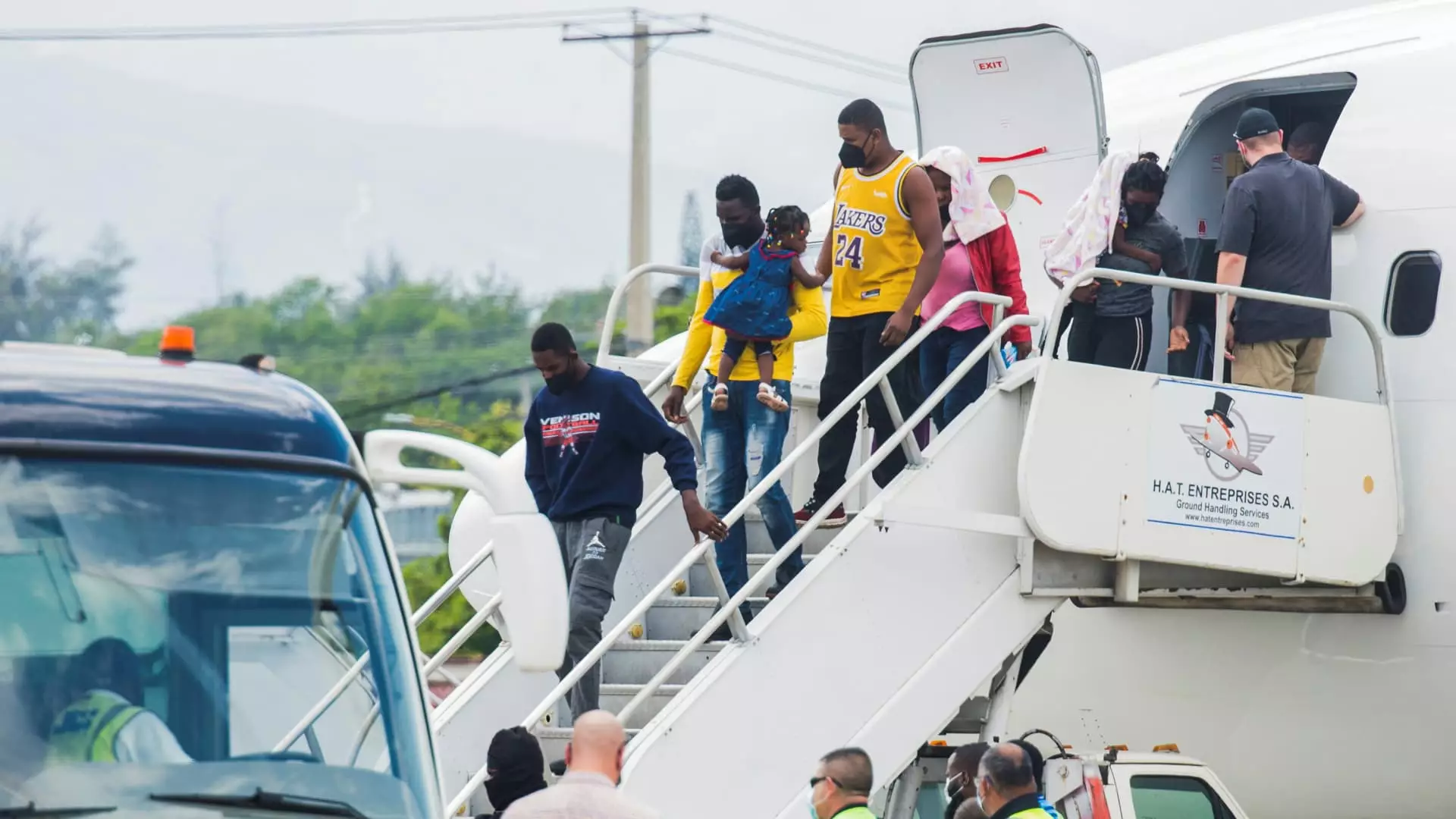The landscape of immigration policy in the United States has always been a dynamic battlefield, marked by competing ideologies and shifting priorities. Recently, the Temporary Protected Status (TPS) for Haitians has found itself at the heart of this contentious discourse. The latest developments stem from the Trump administration’s decision to revoke an extension of TPS that had been announced by the Biden administration. This shift underscores a broader trend of immigration policies that oscillate with political tides and raises urgent questions about the humanitarian considerations that should govern such decisions.
At its core, TPS offers a lifeline to immigrants who cannot safely return to their home countries due to crises such as natural disasters, armed conflict, or extraordinary circumstances. For Haitians, TPS has acted as a critical buffer against the harsh realities back home—characterized by economic instability, rampant gang violence, and political turmoil that escalated following the assassination of President Jovenel Moïse in 2021. The Biden administration’s extension of TPS through February 2026 was aimed at providing much-needed stability to over half a million Haitians who had settled in the U.S. However, the Trump administration’s decision to terminate this extension has reignited fears of deportation and uncertainty for these individuals and their families.
The abrupt cancellation of TPS illustrates the political maneuvering that often defines U.S. immigration policy. Secretary of Homeland Security Kristi Noem claimed that the former administration’s extension was an attempt to cripple the incoming Trump administration. In her view, reinstating TPS to its “original status” reflects a desire to confine this safety net to its intended temporary nature. Such rhetoric overlooks the nuanced realities that many TPS recipients face. For countless Haitians who have established their lives in the U.S., the designation has transitioned from a temporary refuge to a cornerstone of their existence.
As political leaders jockey for control, the voices of people directly affected often go unheard. Advocates like Beatriz Lopez, co-executive director of the Immigration Hub, have been vocal in condemning these decisions. They argue that the revocation of TPS is not merely a bureaucratic adjustment but a move that thrusts countless families into fear and instability, jeopardizing their livelihood and well-being in a country where they have contributed significantly to society.
Revoking TPS for Haitians not only has individual repercussions; it poses broader implications for U.S. industries that rely on immigrant labor. Sectors such as healthcare, construction, and hospitality face potential labor shortages, as many Haitian immigrants play pivotal roles within them. By stripping these workers of their legal status, the government inadvertently stresses systems that already struggle to meet demand. The humanitarian dimension of this issue thus intersects with economic realities, demonstrating that immigration policies are not isolated from the fabric of American society.
In Haiti, the situation exacerbates a dire situation. The United Nations reports thousands of deaths linked to gang violence, with specific communities experiencing alarming rates of brutality. A policy response that results in deporting individuals back to such conditions can be considered not only ethically questionable but also detrimental to international relations and the U.S.’ humanitarian image.
As discussions about TPS evolve, it is imperative for policymakers to consider the human ramifications of their decisions. Rather than employing immigration as a political tool, there needs to be a concerted focus on fostering stability and protecting vulnerable populations both at home and abroad. Reassessing the fairness and efficacy of TPS criteria could pave the way for a more compassionate approach to immigration.
The revocation of TPS for Haitians signifies more than a policy shift; it symbolizes the ongoing struggle between compassion and political expediency. To navigate this complex landscape, a focus on humanitarian values must take precedence, allowing for a legal framework that adapts to the realities of crisis and conflict, while also addressing the needs of vulnerable populations. The future of TPS and similar programs should serve as a reminder that immigration policy should be rooted not just in legality but also in morality.

Leave a Reply